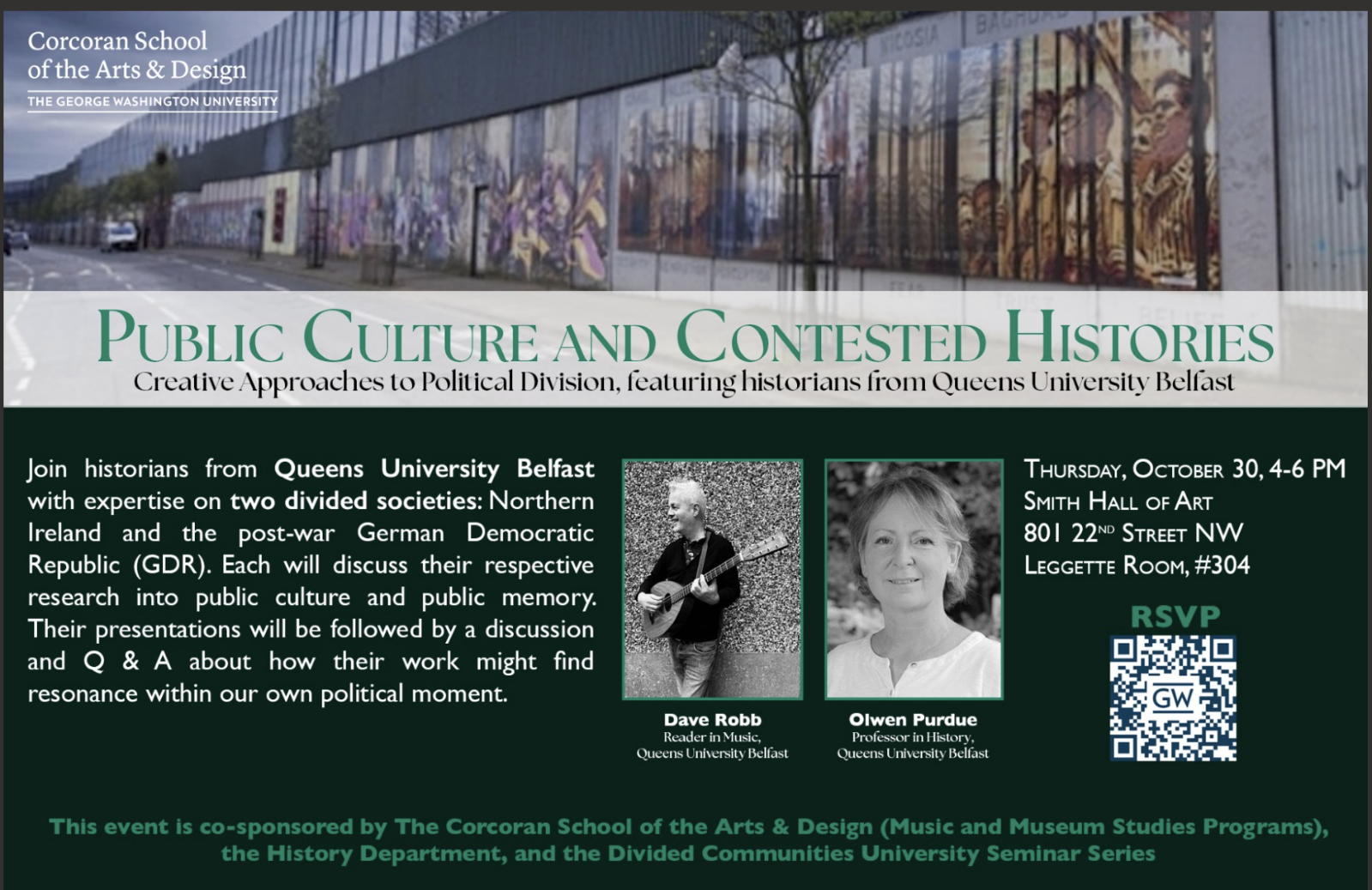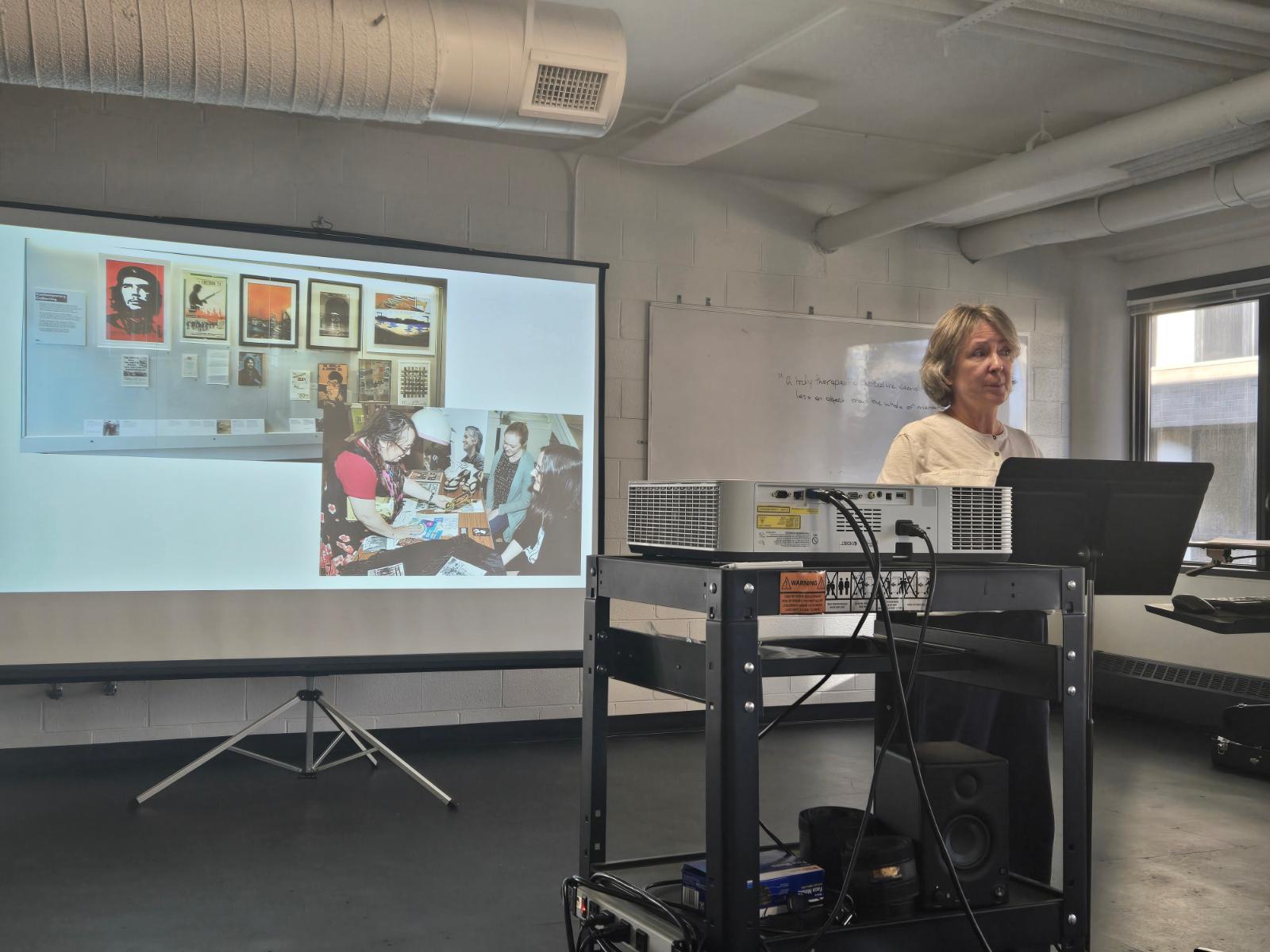Public Culture and Contested Histories: Creative Approaches to Political Division

Mitchell Institute Fellow Dr Dave Robb and QUB colleague Professor Olwen Purdue (School of History, Anthropology, Philosophy and Politics) presented at the George Washington University on 30 October 2025 as part of their Divided Societies Seminar Series.
Queen’s University Belfast and George Washington University have enjoyed a close partnership for the past eight years, developing the Global Bachelor’s Programme that sees cohorts of 20-30 George Washington University students come to Queen’s for a Study Abroad semester each year, and the Divided Communities Seminar Series that promotes research exchange and collaboration between QUB and GW academics
Dave presented his paper: ‘A Filling Station for Losers’. Gerhard Gundermann singing for the underdogs in a divided German society.
In the divided Germany of the Cold War, the coal miner and musician Gerhard Gundermann originally sang political songs in support of the GDR state. Expelled from the communist party for dissent in 1984, however, he became a leading advocate of change in the years prior to the fall of the Berlin Wall. In the united Germany of the 1990s, as new divisions emerged between society’s winners and losers, Gundermann released four highly acclaimed albums reflecting the view of the socially marginalized. Although he died prematurely in 1998 at the age of 43, a strong remembrance culture celebrates his legacy up to the present day in the former East. In this paper, Dave looked at the narrative persona Gundermann created in his songwriting, always representing the perspective of the powerless.
Dave has recently completed an AHRC Research Development and Engagement Fellowship on the work of Gundermann. Read more about the project in David’s blog here.
David has translated Gundermann’s songs into English and released the album Filling Station for Losers. Songs of Gundermann (Buschfunk 2024). Read more here.
Professor Olwen Purdue presented her paper: To remember, or to forget? The public history of contested pasts in a divided present.
Taking Northern Ireland as a case study, Olwen addressed the role that public history can play in divided societies. In places such as Northern Ireland, where binaries of 'us' and 'them' run deep, different versions of 'history' are often used to perpetuate such division. In such contexts public historians have a vital role to play, and yet can struggle to find ways to present contested histories in ways that engage public audiences, and challenge as well as inform.
In her paper, Olwen explored some of the work being carried out by Northern Ireland's museum sector to explore the region's contested past, and also discussed her own oral history work with communities that experience social marginalisation and economic challenge, who feel that their voices aren't heard or don't matter, and who will also probably never visit a museum. She asked how we might employ Participatory Action Research in such contexts to engage communities in exploring histories that are shared rather than divide, to begin to listen to other perspectives, and to unlock the very real societal benefits of engaging in history-making in a collaborative way.

Dr Dave Robb is a Mitchell Institute Fellow and Reader in Music in the School of Arts, English and Languages at Queen’s University Belfast. His research has focussed on the role of musical forms of protest in German history going back to the 1848 Revolution.
Completing his PhD at the University of Sheffield in 1995 he was a post-doctoral tutor at the Humboldt University in Berlin before being appointed to German Studies at Queen’s in 1999.
Dave is also a musician and songwriter.

